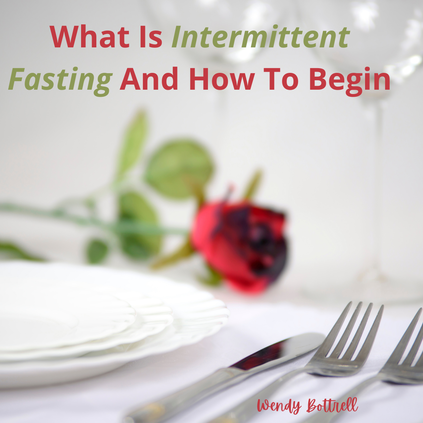Intermittent Fasting Month This month we are sharing ideas and information on Intermittent Fasting. This is something we decided to experiment with during 2020. We are definitely glad we did, and we are only sharing our ideas on this topic here, and each of you must consider for yourself if this is something you will want to practice. As we all know 2020 was a stressful year and we thought giving fasting a chance might be a way to help reduce some stress for our mind, body and spirit. We had no idea how this was going to go and that was a part of the plan.
Now, I wasn’t overweight, yet I was carrying more weight than I wanted to. What I can share with you after a year of practicing this Fasting practice is my weight is down 2 waist sizes (about 25 lbs.), I feel stronger, my training and fitness are fantastic, and I feel good. So, what is Intermittent fasting? Intermittent fasting is a way of eating that promotes weight loss, fat burning, muscle building, and many other health benefits through a very simple eating pattern. Here is more information about intermittent fasting so that you can decide if it is a good option for you. IF is a Pattern of Eating Many people call intermittent fasting a diet, but we think of it rather as a pattern of eating or dieting for optimal success. It teaches you a lot, including how to listen to your body’s hunger signals, and to follow a healthy pattern of eating. You are following a specific pattern each day, where you only eat during a shorter block of time, fasting for the rest of the day, except for having coffee, tea, and water. This pattern helps your body to burn food more quickly so that there is more time for burning fat. By now, you have probably read about intermittent fasting and all of its health benefits, but now it is time to start planning. You must not just jump into it without getting all the pertinent information, and definitely not without planning ahead of time. As I indicated at the start of this post, I began practicing intermittent fasting at the start of 2020. I like it and as I was reading/learning about the benefits of fasting I just got really excited. In fact, there is lots of info on the benefits of Intermittent fasting and frankly, it was a challenge when I began. I never thought that I would be able to go without eating food in the morning or to feel hungry. Well, this was not true and learning how to feel hungry and continue with my day was a great thing in so many ways for me. Here is more info on fasting here https://drjockers.com/best-intermittent-fasting-strategies/ Here are some tips for starting an intermittent fasting protocol. Plan Ahead of Time One of the most integral parts of starting an intermittent fasting protocol is planning properly. You need enough time to plan ahead, including choosing your protocol, and knowing when and how to eat. Don’t just spend 20 minutes reading about IF, then assume you can start tonight. It takes time to learn about different methods and what will work with your schedule. T ake the time to write down what times of the day you will eat, workout, and fast, so that you know what to expect. Don’t Follow the Common Mistakes There are some mistakes that people tend to make when they begin with intermittent fasting. By planning ahead, you are already avoiding one of the common pitfalls. Now might be the time to jot down a few reasons WHY this might be a perfect time to practice Intermittent Fasting for you. In addition, do not obsess too much about the eating and fasting windows. This is where many people go wrong. Just eat at the same time for each eating window, and it should be fairly easy. Over time, you will become accustomed to how long you go without eating. You also want to avoid these common mistakes: • Don’t binge eat when it’s time to eat after a fast • Don’t use this as an excuse to eat what you want • Don’t stress about the process Eat as Healthy as You Can - Real Organic Food Is Always The Best Choice When you first start with a new intermittent fasting protocol, make sure when you eat, you are eating real food but don’t be too strict. There is a delicate balance here between nourishing your body and providing essential fuel that gets you through the next fasting stage, but not depriving yourself so much of what you want, that you can’t stick with intermittent fasting. It is okay to eat how you normally would with intermittent fasting, unless you have some type of strict diet regimen you need to stick to, from low-carb to being gluten-free. Now, we have written many times on the need to eat a real food organic diet and it is important in our opinion to keep this in mind. Stick with the real foods in your eating window for your best health and wellbeing. And stay away from the highly processed Frankenfoods, junk foods, sugar, for example. If these are things you are in the habit of eating, make the commitment to begin thinking about getting them out of your eating practice over time. More on this tomorrow. Your feedback is invaluable! We'd love to hear from you! Share your thoughts, ideas, or comments below, and let's continue to inspire each other on our paths to wellness. If you ever need guidance or support, don't hesitate to reach out. We're here to help you thrive every step of the way. Let's Build Health & Fitness - Join Our Newsletter Today & Receive the FREE Beginners Guide To Healthy Eating! Sign Up Today! https://bit.ly/42Hf0aR
0 Comments
Leave a Reply. |
Archives
July 2024
Categories |










 RSS Feed
RSS Feed
